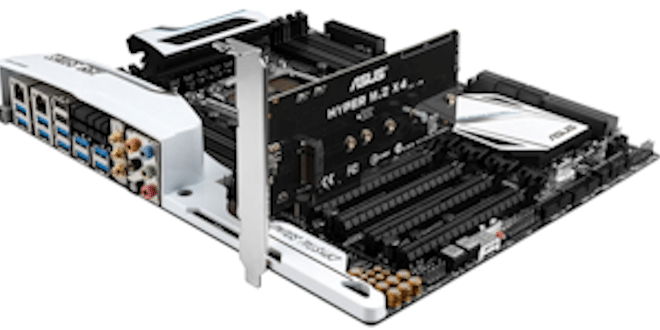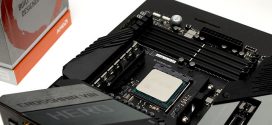Testing & Methodology
Focus on the performance Gains/Losses from maturing BIOS
Test System Configuration Notes: When configuring our test system for this article, we first updated the BIOS to the original 0505 that shipped with first release boards.When we rebooted we went into UEFI BIOS and set the board to its “normal” mode via the one-click tuning menu. We have found that the “optimized” mode overclocks the processor as high as possible, so it could give this particular chip and setup an unfair advantage over the other X99 boards we are testing. Once we had set the board to “normal” we saved the settings, re-entered the BIOS and ensured the memory speed was set to DDR4-2400 (its maximum, officially supported speed). Our test system composed of an Intel Core i7-5930K CPU, 16GB of Kingston DDR3000, a Silverstone 1500 PSU, an Nvidia GTX 960 GPU, and two Corsair P128 SSD in RAID 0. The operating system was a fresh install with all potentially interpretive programs were disabled, indexing and the likes. Caches and prefetch were cleared before each test. We ran a complete set of tests with the original 0505 BIOS, then we switched BIOS to 1401 and ran the exact same tests to determine the differences BIOS makes to performance. We included the results from two other Boards, the Gigabyte X99 SOC Champion and the Gigabyte GA-X99-UD4 but the main focus of the review is how the Maturing BIOS affects performance.
Before we began testing the Gigabyte X99-SOC Champion the test system was formatted, and Windows 8.1 x64 was installed. When the Windows installation was complete, we fully updated the OS, and installed the drivers necessary for our components. Auto-Updating and Windows Defender were then disabled and we installed all of our benchmarking software, performed a disk clean-up, cleared any prefetch and temp data, and ran the tests.
Test Rig
| Test Rig “Hexzilla” |
|
| Case Type | Corsair Obsidian Series 800D |
| CPU | Intel Haswell E 5930k 3.0GHz |
| Motherboard | Asus X99 Deluxe |
| Ram | Kingston Fury 32GB 2400MHz (15 – 15 -15) |
| CPU Cooler | Thermalright Ultra 120 RT (Dual 120mm Fans) |
| Hard Drives | Kingston M.2. SM2280S3 120GB M.2. Solid State Drive |
| Optical | Asus Quiet Trac BR |
| GPU | EVGA GTX 960 SSC |
| Case Fans | 120mm Fan cooling the mosfet CPU area |
| Docking Stations | None |
| Testing PSU | SilverStone 1500W |
| Legacy | None |
| Mouse | Razer Lachesis |
| Keyboard | Razer Lycosa |
| Any Attempt Copy This System Configuration May Lead to Bankruptcy |
|
Benchmarks
| Benchmarks |
|---|
| SuperPi Mod 1.5 |
| Wprime 1.55 |
| PCMark 7 |
| Cinebench R11.5 |
| X264HD |
| Truecrypt 7.1 |
| Unigine Heaven 4.0 |
| Handbrake |
| AIDA64 |
 Bjorn3D.com Bjorn3d.com – Satisfying Your Daily Tech Cravings Since 1996
Bjorn3D.com Bjorn3d.com – Satisfying Your Daily Tech Cravings Since 1996








